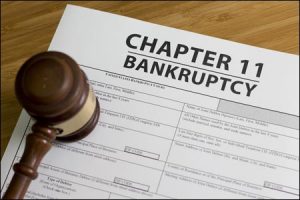
The coronavirus from China has wreaked havoc around the world, and no industry was as hard hit as the travel industry. Canceled flights and cruises were compounded by resort closures and people staying home for fear of their lives. This has caused travel agencies to see revenue collapse. Yet travel agencies have very low overhead expenses, so they have the potential to bounce back when things reopen. This means they could survive if they can refinance or shed debts, while liquidation bankruptcy isn’t of much benefit. So how does a travel agency file Chapter 11 bankruptcy?
Submit a Bankruptcy Petition
A chapter 11 bankruptcy can be filed by the debtor. It can also be filed by creditors in certain circumstances. They would do this to force the business to continue to operate and, ideally, meet its legal obligations.
Any business can file for Chapter 11 unless they have had a prior petition dismissed because they didn’t appear in court or failed to comply with prior orders from the courts. If you’re a sole proprietor, you may be required to seek credit counseling from an approved credit counseling agency.
If the courts think you cannot successfully reorganize the business, they may reject the petition. Then your petition is converted to a Chapter 7 liquidation.
You Continue Business Operations
In Chapter 11 bankruptcy, you continue to operate the business under supervision of the courts, assuming a short list of exceptions isn’t met. For example, if your creditors file a petition claiming fraud, theft or gross incompetence, they may ask the courts to appoint someone else to run the business. In every case, you’re allowed to continue operating the business, though you’ll run major decisions by the court-appointed trustee.
The court will have to approve the selling of assets unless you’re selling them as part of ordinary running of the business. This means you’ll need permission to sell a company car but not little trinkets in the front office. You’ll need court permission to enter or break the lease, though renegotiating a lease can significantly lower your overhead expenses. You must have court approval to enter a new contract or modify existing licensing and vendor contracts. You’ll have to have court permission to shut down the business, too.
Creditors can support or oppose actions submitted to the court for approval. Fortunately, they really only have a yeah or nay decision when you submit the initial Chapter 11 plan. And they’re not likely to complain if you ask for permission to break an expensive lease so you can move to a smaller, cheaper office or break a union contract and lay off 20 people to lower costs.
Submit Regular Reports and Pay Your Bills
Under a Chapter 11 plan, you’ll submit financial reports that tell the court and your creditors how much money you bring in and how much you’re paying out. This allows everyone to know how much money is available to pay your debts.
Furthermore, you’re obligated to pay your creditors. The creditors may only be paid a fraction of what they are owed, but the bankruptcy plan will distribute the money paid to each creditor in what is considered a fair way.
Secured creditors must be paid at least what the item secured by their loan is worth. This category includes liens and mortgages. Fail to make payments, and they can go back to court to get permission to seize the underlying asset.
Unsecured creditors are paid in accordance with the bankruptcy plan. They are probably going to be paid much less than they are owed, but this is why unsecured debt has a higher interest rate.
Complete the Bankruptcy Plan
Studies suggest that less than fifteen percent of Chapter 11 bankruptcy plans result in a functional business emerging from bankruptcy. Then why do businesses do it? Filing for bankruptcy automatically stays or stops collection activities like foreclosure and judgements. This may give you breathing room to decide what you’re going to do next. That next step may include the orderly shutdown of your business and dividing up the proceeds between your creditors. In fact, that may be part of a Chapter 11 bankruptcy plan approved by the creditors. By ensuring clients make it home and collecting revenue while winding things down, they get more money than if you just closed your doors.



